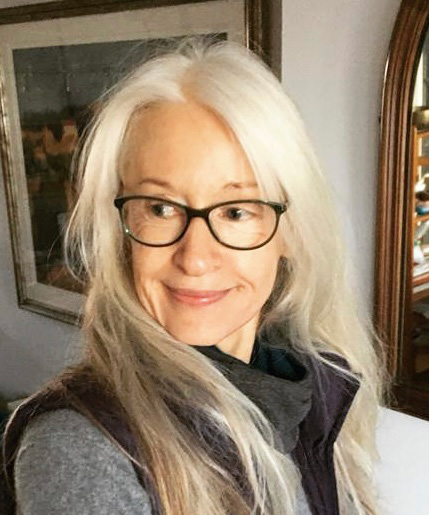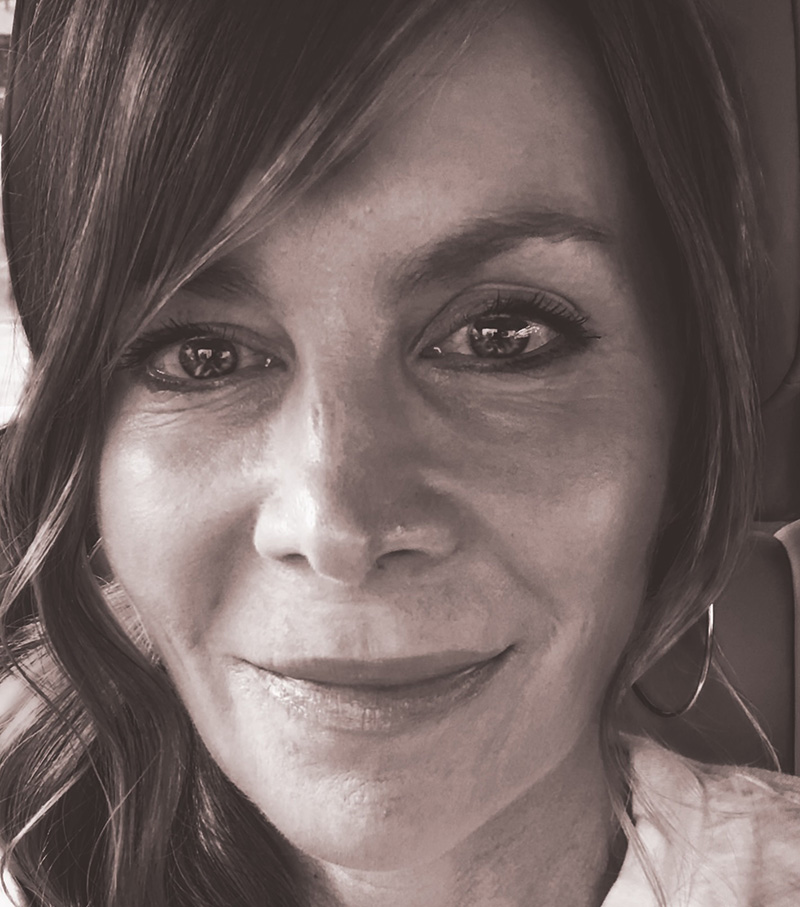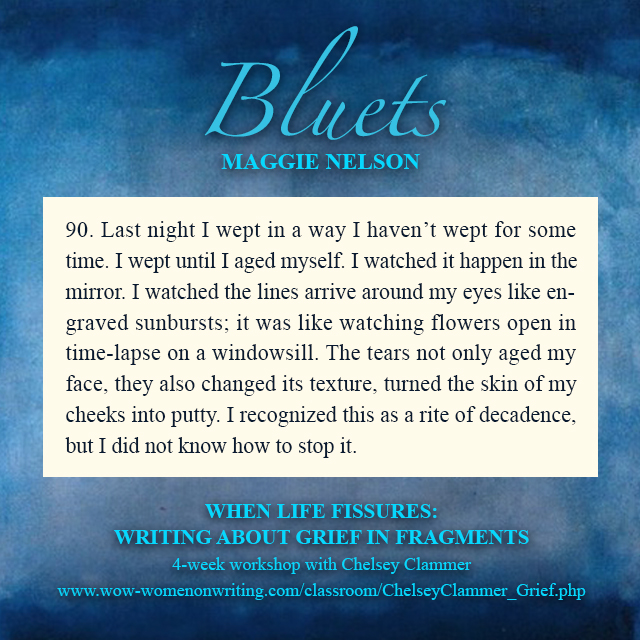Sandra’s Bio:
Sandra Jensen has over 60 short story, essay and flash publications including in: World Literature Today, The Irish Times, Descant and AGNI. Awards include winning the Bridport Prize for a first novel and the Grindstone Novel Prize, and multiple honorable mentions, short and long-listings for her short stories and flash pieces. She was also awarded Top 10 in WOW! Women on Writing’s Q3 CNF Essay Contest. She is currently working on a hybrid memoir in essays about art, illness, trauma and her relationship with her sculptor mother. Sandra leads writing workshops and mentors writers. She has been living with chronic illness for three decades and her book for writers with chronic disabling conditions, “The Irrepressible Writer: How Writers with Ill Health Write Well”, commissioned by Story Machine in the UK, will soon be published. She currently lives in Brighton, England. You can find her at www.sandrajensen.net.
Read More »
If you haven't done so already, check out Sandra's award-winning story "Eclipse" and then return here for a chat with the author.
WOW: Congratulations on placing in the Q4 2024 Creative Nonfiction Contest! How did you begin writing your essay and how did it and your writing processes evolve as you wrote?
Sandra: I started this piece many years ago, and most likely started it in the same way as most of my short pieces: using a method called Freefall and my own process which I call A Page a Day. I talked a bit about these in my previous interview. Essentially, I don’t plan anything, I just sit there and see what arises, and once I start writing, I let one word follow the other, without changing anything, just to see where it goes. It often goes nowhere useful, but I’ve had a lot of short pieces published using this method, and sometimes with very little editing needed. However. I was not getting any bites with publishing “Eclipse”, so every so often I’d take another look and do a bit of tweaking. One of the main issues for me with this piece was the ending, I couldn’t get it right. But after being awarded Runner Up in a recent WOW Creative Nonfiction Essay contest, I took another look and worked hard on the ending until I was happy with it. A couple of people have said it makes them laugh, which I like, given it’s quite a dark piece!
WOW: Thanks so much for sharing more about your writing process using Freefall and A Page a Day. Sounds like it has helped you to be a productive writer. What did you learn about yourself or your writing by creating this essay?
Sandra: I can’t say anything specific really about this essay, but what I have been coming to terms with recently is that perhaps I’m a better nonfiction writer than a fiction writer! Most of my fiction is largely based on my own experience, but perhaps it’s time to focus on nonfiction.
WOW: Fun! Enjoy exploring the nonfiction genre! From your bio, it sounds like chronic illness has influenced you as a writer. Will you tell us more about your experience with the intersection of writing and illness?
Sandra: Another difficult question to answer, for me at least. While I fully agree with what Virginia Woolf said in her essay “On Being Ill”—that a person relates to, perceives, the world differently when sick, I have for most of my three decades of being ill tried to pretend I wasn’t, and considered myself ‘normal’. In the early years, this was possible as my illness was not as severe as it is now. As it became more severe, when I finally committed to being ‘a writer’ in my mid-forties, it was a great relief to focus on something other than my health and the various symptoms that plagued me. In fact, initially my health improved. I didn’t write about my illness, and I’ve only recently started doing so. I don’t – or haven’t – found it cathartic, but perhaps I haven’t yet found the right entry point.
Much of my early work is very body-based, however. “Give all the sensuous detail” is one of the Freefall precepts, and for me this was easy as I was and am so physically sensitive: in touch with – too much so! – physical sensations, with smells, noises, textures and so on. I’ve backed off a little on this approach, but I do feel it’s given me an advantage in terms of expressing how certain characters feel and experience the world. Also, as my own world is quite limited compared to many, and these days I walk and move slowly, I notice small things that might pass others by. The shape of tiny leaves, the brush of air against my cheek.
There’s a quote by Amy Morgan that I like “…it seems likely that living with illness may deepen writers’ capacity to imagine extreme situations.” I think this is correct, although in my case I have CPTSD which means I’ve lived through a number of extreme situations anyway!
I should say I am grateful that it was never my dream to become a firefighter or something else that requires a strong, resilient body, although in 2021 I developed severe sciatica, and this put a massive dent in my ability to write. Sitting or even lying down made the pain worse, and I can’t stand for any great length of time. It was devastating for me. Thankfully the pain is now well managed. And my illness is still tremendously limiting. I only have about 3 or 4 usable hours in a day to do something that isn’t resting or taking care of myself (or my rescue cat!), and this of course affects how much I’m able to focus on my writing.
WOW: Thank you for sharing your story about illness and its connection to your writing. I find it so helpful and inspiring to hear what other writers are overcoming to be productive and successful writers, and I very much appreciate hearing about your experiences. Which creative nonfiction essays or writers have inspired you most, and in what ways did they inspire you?
Sandra: While I’d read and loved Jo Ann Beard’s The Boys of My Youth, it wasn’t until I read Alexander Chee’s How to Write an Autobiographical Novel that I realised what an art the personal essay was. And what an exciting art! That book made me want to learn how to do it. I don’t think I have, not yet at least. Not longer essays. But I’m working on it. For me, many of the best essays – personal essays – can be both personal and universal, perhaps weaving two or more threads together to create something that is so much more than a particular event or situation in someone’s life.
WOW: Those are excellent examples that show what creative nonfiction can accomplish. If you could tell your younger self anything about writing, what would it be?
Sandra: Don’t procrastinate and do everything else under the sun other than writing!
WOW: I think many of us can relate to that! Anything else you’d like to add?
Sandra: I always appreciate if there’s a touch of humour when I read essays about dark or difficult subjects. I suppose it’s something I’m trying to learn, not just in writing, but about life. How to hold onto that touch of lightness in the face of suffering or adversity.
WOW: Thank you for sharing your writing with us and for your thoughtful responses. Happy writing!
Interviewed by Anne Greenawalt, founder and editor-in-chief of Sport Stories Press, which publishes sports books by, for, and about sportswomen and amateur athletes. Engage on Twitter or Instagram @GreenMachine459.

















